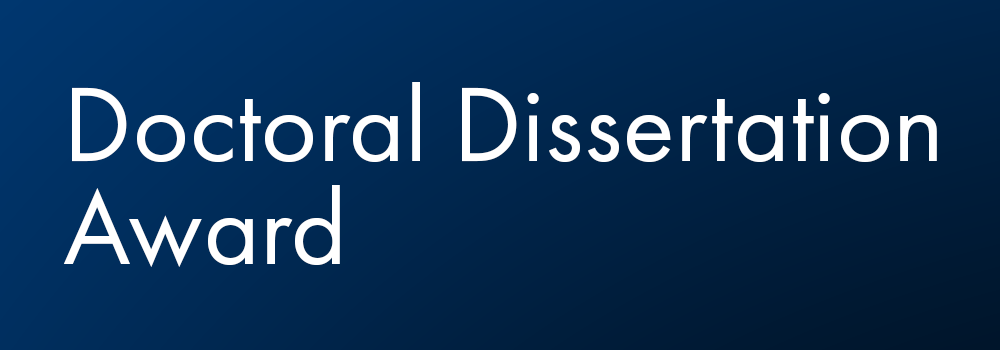
Doctoral Dissertation Award
The Doctoral Dissertation Award (DDA) is for doctoral students who demonstrate significant originality and technical competence in any supply chain function. The DDA is open to all who will have completed their doctoral work in a field related to functions within the supply chain. The winner will be presented their award during CSCMP's Academic Research Symposium.
Criteria
To be considered eligible, candidates MUST be a member of CSCMP and follow the criteria and formatting guidelines and submit a completed application form to the Council of Supply Chain Management Professionals (CSCMP).
The nomination period for the 2025 Transportation Excellence Award will kick off in January 2025.
The Selection Process
A selection committee comprised of both academics and practitioners using a blind review process will evaluate dissertation abstracts. The author's name must remain unknown and therefore the abstract should not make any reference to either the author or his/her academic institution.
Past Recipients
2023: Nicolò Masorgo, University of Arkansas
2022: Dr. Lina Wang, Arizona State University
2021: Dr. Rebekah Brau, Brigham Young University
2020: Conference Canceled
2019: Dr. Maximilian Merath, University of Mannheim, Germany
2018: Dr. Tobias Kosmol, Otto Beisheim School of Management in Koblenz, Germany
2017: Jeffrey Risher, Southeastern Louisiana University
2016: Dr. Barbara Yilmaz, Ph.D., WHU—Otto Beisheim School of Management
2015: Jason Miller, Colorado State University
2014: William Schmidt, Harvard Business School
2013: Jason A. Acimovic, Massachusetts Institute of Technology's Operations Research Center
2012: Xiang(Sean) Wan, University of Maryland, Smith School of Business
2011: Haritha Metta, University of Kentucky
2010: Matthias Ehrgott, WHU—Otto Beisheim School of Management, Vallendar, Germany
2009: Timothy J. Pettit, The Ohio State University
2008: Dilay Çelebi, Istanbul Technical University
2007: Arunachalam Narayanan, Texas A&M University
2006: Supriya Mitra, Syracuse University
2005: Haiqing Song, Sun Yat-Sen University
2004: Paulo Marcio Gonçalves, Massachusetts Institute of Technology
2003: Jarid Karim, Warwick University
2002: Julie Swann, Georgia Institute of Technology
2001: Moritz Fleischmann, Eramus University, Rotterdam
2000: Cenk Caliskan, University of Southern California
1999: Remko I. Van Hoek, Erasmus University Rotterdam
1998: John L. Kent, Southwest Missouri State University
1997: Christopher G. Caplice, Massachusetts Institute of Technology
1996: Harry L. Sink, University of Tennessee
1995: Julie Gentry, Arizona State University
1994: Timothy C. Johnston, University of California-Berkeley
1993: David A. Menachof, University of Tennessee
1992: Daniel E. Innis, The Ohio State University
1991: John Pooley, Pennsylvania State University
1990: John T. Gardner, The Ohio State University
1988: Edward H. Frazelle, Georgia Institute of Technology
1987: Jule Gassenheimer, University of Alabama
1986: Diane Twede, Michigan State University
1985: Mary K. Allen, The Ohio State University
1984: David E. Lloyd, The Ohio State University
1983: Nada R. Sanders, The Ohio State University
1982: Ersell Powell Robinson, Jr., University of Texas
1981: Martha Cooper, The Ohio State University
1980: Jossef Perl, Northwestern University
1979: Howard M. Armitage, Michigan State University
1978: Frances Gaither Tucker, The Ohio State University
1977: Michael Levy, The Ohio State University
1976: Douglas A. Fisher, Indiana University
1975: Douglas M. Lambert, The Ohio State University
1974: Joe Cavinato, Pennsylvania State University
1973: Kenneth Graham, University of Wisconsin